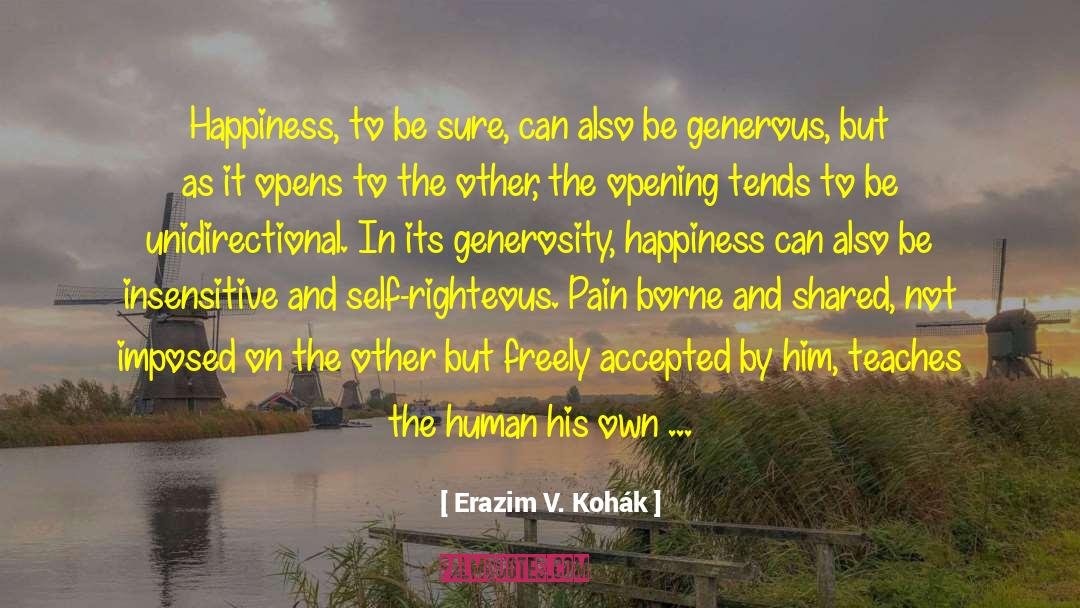Erazim V. Kohák Famous Quotes
Reading Erazim V. Kohák quotes, download and share images of famous quotes by Erazim V. Kohák. Righ click to see or save pictures of Erazim V. Kohák quotes that you can use as your wallpaper for free.
It is not simply in wonder but in love that philosophy begins.
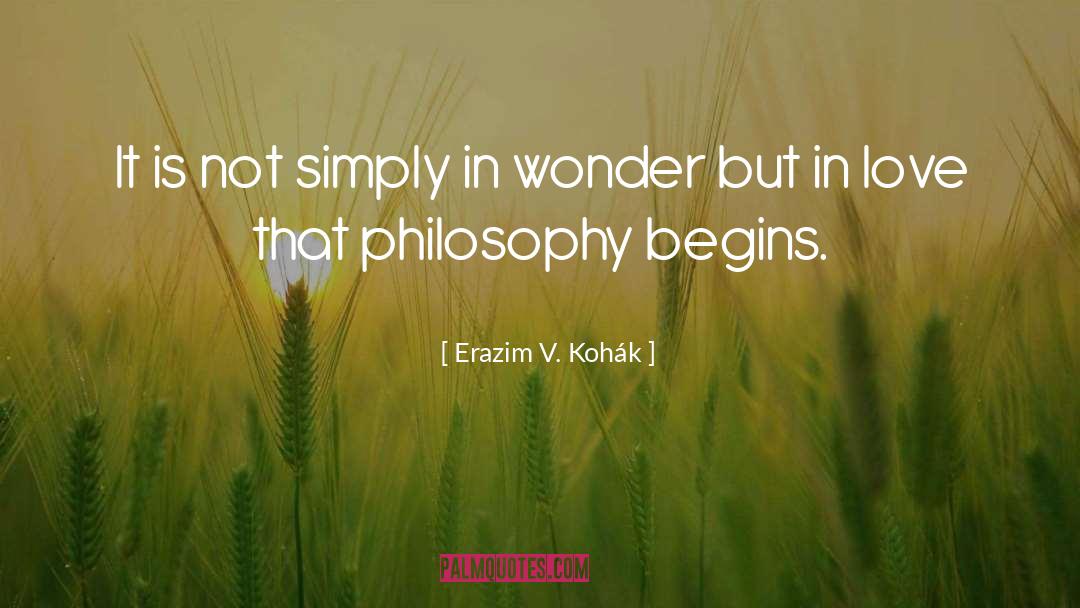
The rising full moon does not "shine," it does not illuminate the forest. Even to say that it "glows" would not be accurate. All our words for lighting seem inappropriate. They are active verbs, suggesting doing, while the moon does not do. It lets itself be seen, not crowding out the darkness but rending it visible. The sun transforms the world in its image, the moon evokes it in its primordial presence. It is by moonlight that I have seen, with a searing clarity, that Being is not convertible with nothing.
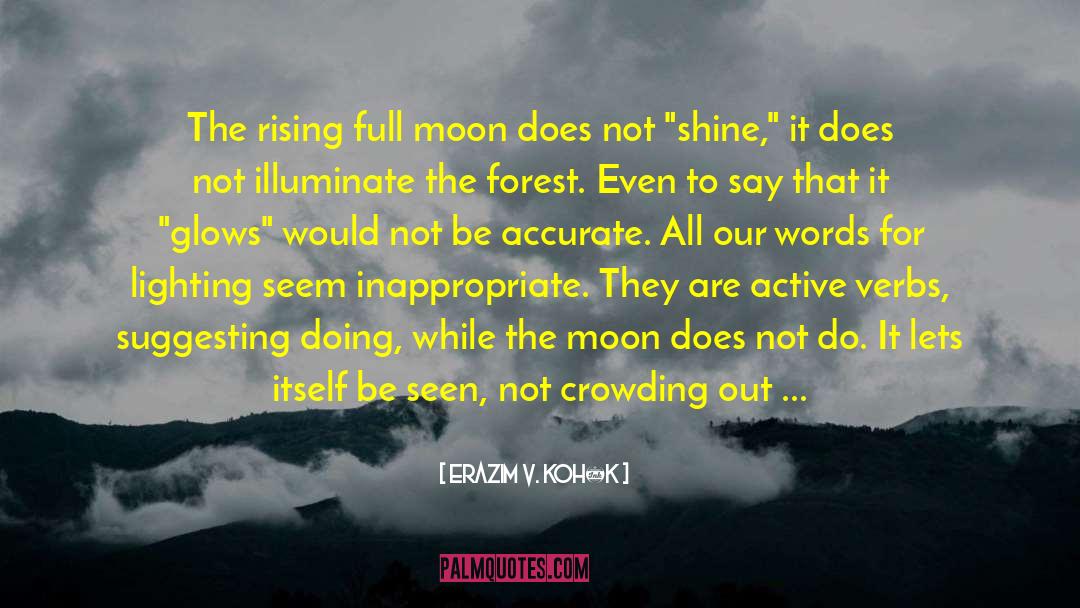
The conventions of hedonism and of utility can, in fact, be extremely elaborate. Its motives, however, though perhaps wholly free of greed, remain strictly those of need. Goodness remains reducible to utility, rightness to prudence, beauty to aesthetic enjoyment. The point of reference is individual preference, not the generically human vision of a moral sense of life. What is missing is the recognition of intrinsic beauty, rightness, goodness.
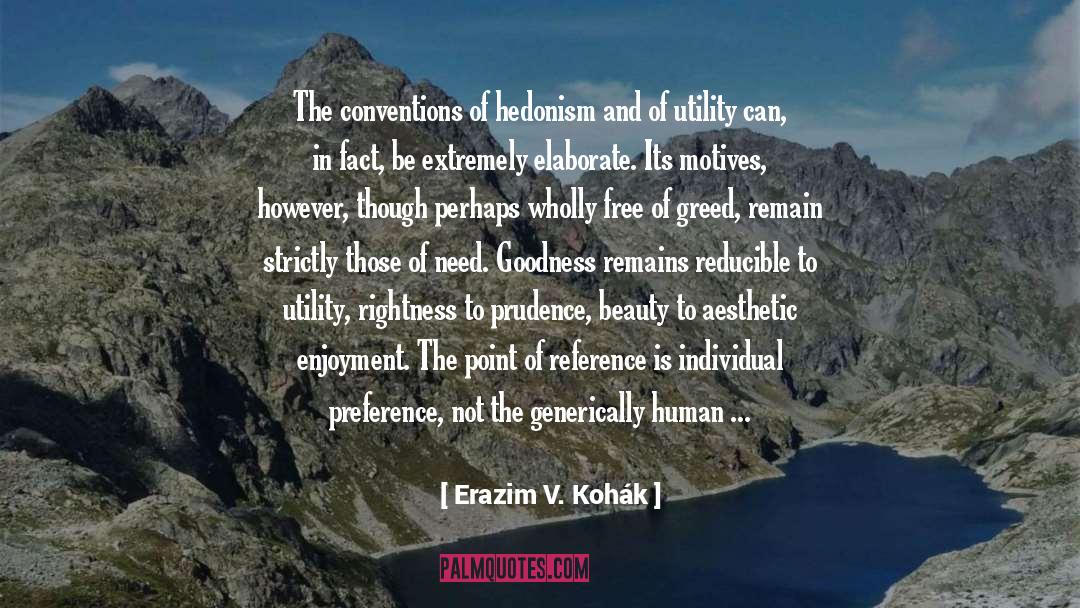
Yet solitude need not be loneliness: it can also be the cure of loneliness. It is not a matter of "learning to live without others," but rather of learning to live with nature and others, not outshouting them with our insistent presence, but being instead ready to see and hear, in love and respect. For, in understanding as in sense perception, it is when we stop speaking that we begin to hear; when we stop staring, things emerge before our eyes; when we stop insistingon our explanations, we can begin to understand. As solitude dissolves the opacity of our collective monad and the dusk lights up the moral sense of life, humans can begin to see.
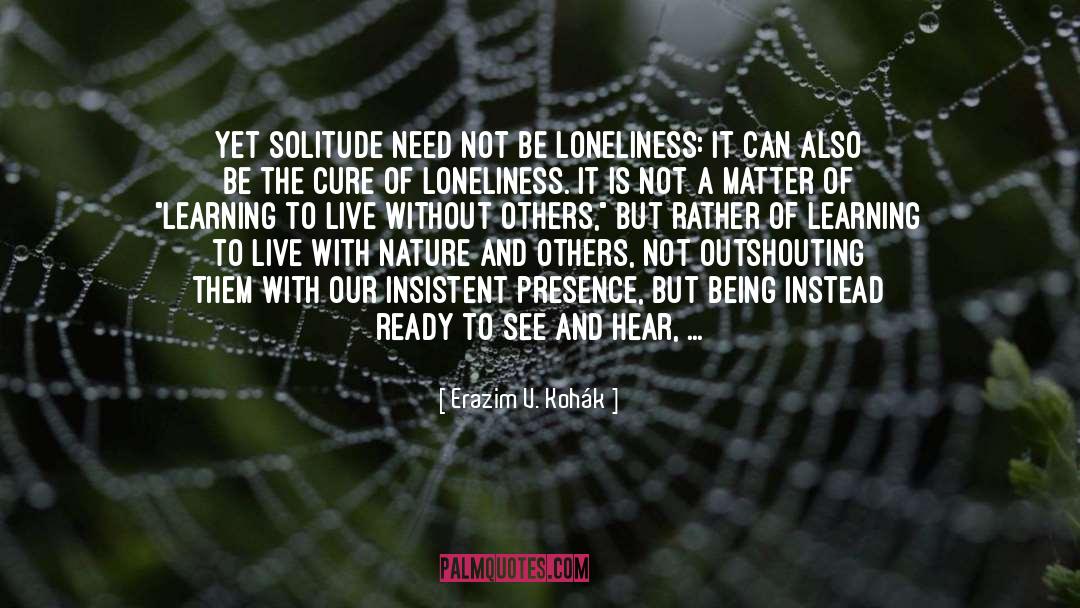
I sense my own place in the rhythm of the seasons, from seed time to harvest, the falling leaves and the stillness of winter. Some tasks are, perhaps, uniquely mine, not shared by other dwellers of the field and the forest. I can cherish the fragile beauty of the first trillium against the dark moss, and I can mourn its passing. I can know the truth of nature and serve its good, as a faithful steward. I can be still before the mystery of the holy, the vastness of the starry heavens and the grandeur of the moral law. That task may be uniquely mine. Yet even the bee, pollinating the cucumber blossoms, has its own humble, unique task. Though distinct in my own way, I yet belong, deeply, within the harmony of nature. There is no experiential given more primordial than that.
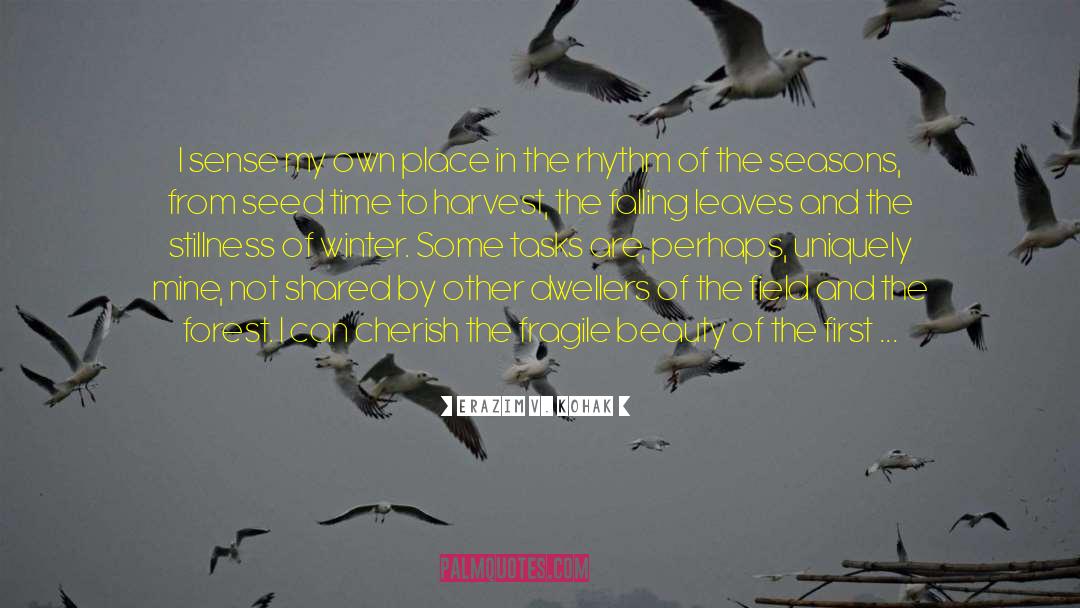
Eternity, so understood, is not an extension of time, not even an indefinite time. It is, rather, a vertical dimension cutting through time at each of its moments. It is the confrontation with the full moon through the trees dark with the day's rain. It is the goodness of an act or the truth of a witness which avail nothing in the order of time, yet are still irreducibly good. It is the awareness of the intensity of the blue sky on a summer day.
…
The pain of the grief suffered by a loved one has a similar quality. It once was, and it is no more. There were events which led up to it, and events which followed it, and, for practical purposes, it makes every kind of sense to think of it in those terms, in the order of time. Yet there is another perspective that will not be denied: recognizing that grief in its purity, in its eternal validity before God. So, too, the beauty of the trillium or the goodness of a moral act which changed nothing and yet, for all eternity, stands out in its nobility. Humans are beings capable of perceiving all that. They are capable of perceiving the creation not only in the order of time but in the order of eternity, lifting up its moments out of time's passage into eternity in the eternal validity of truth, goodness, and beauty of their joy and sorrow.

To reconcile, that is what the forest does, silent and accepting, as if God were present therein, taking the grief unto Himself. When humans no longer think themselves alone, masters of all they survey, when they discern the humility of their place in the vastness of God's creation, then that creation and its God can share the pain. For the Christians, the Cross symbolized that reality; confronted with it, the human is not freed of grief, but he is no longer alone to bear it. It is taken up, shared.
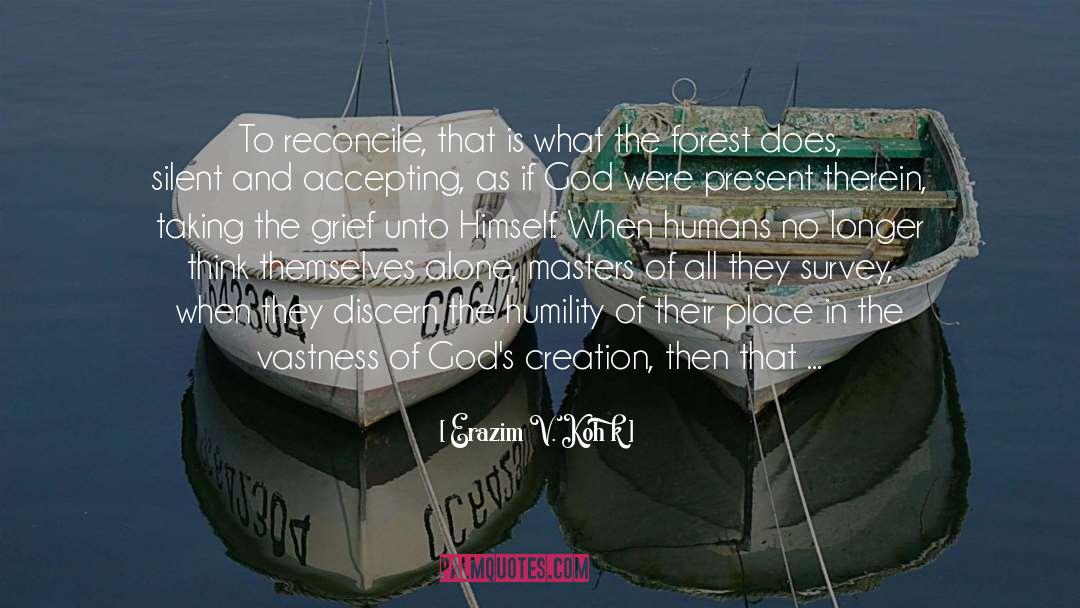
Happiness, to be sure, can also be generous, but as it opens to the other, the opening tends to be unidirectional. In its generosity, happiness can also be insensitive and self-righteous. Pain borne and shared, not imposed on the other but freely accepted by him, teaches the human his own insufficiency, his own need and, with it, gentleness. It opens him to receive, in empathy, the gift of the other, not in censure but in gratitude and love. The blindness of time, judging in terms of what happens to aid or to hinder, must yield to the wisdom of eternity, which sees, behind time's pleasures and annoyances, the eternal value of every fragment of what is good, true, beautiful.
